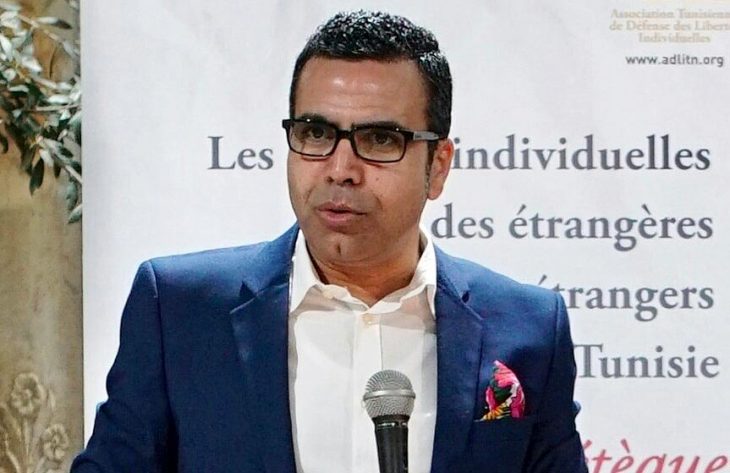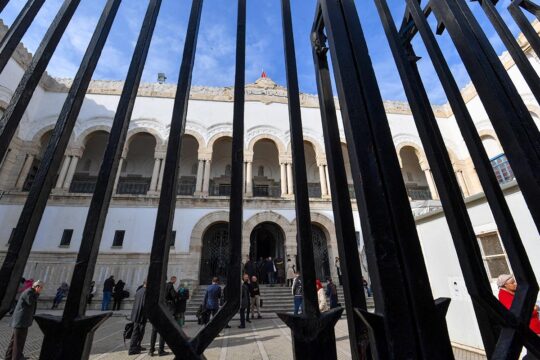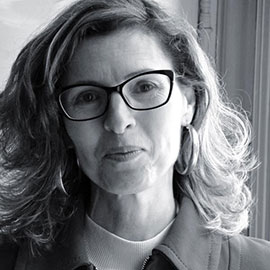Wahid Ferchichi, professor of public law and human rights activist, has been involved in all the projects and experiences related to transitional justice in Tunisia. He was a member of the National Investigation Commission on Corruption (2011-2012) and of the Technical Commission for the Supervision of the National Dialogue on Transitional Justice (2012-2013). In 2014, he co-authored, with Farah Hashad, a series of books on the political police, intelligence and archives of the dictatorship. Between 2013 and 2016, he coordinated the work of the Transitional Justice Barometer, a project bringing together researchers from Europe and Tunisia. He has just presented his study on the recommendations of the Truth and Dignity Commission, an in-depth reading of this report of more than 2,300 pages.
We realized that we did not necessarily need an authority, State or local authorities to start implementing the recommendations.
JUSTICEINFO.NET: Why did the Kawakibi Centre for Democratic Transitions, a regional non-governmental organization in which you are an expert, choose to work on the final report of the Truth and Dignity Commission (IVD)?
WAHID FERCHICHI: The Kawakibi Centre has been interested in transitional justice since 2011. On February 22, 2011, a month and a few days after the events of January 14 [the day President Ben Ali fled Tunisia under street pressure], the Kawakibi Centre organized the first civil society conference on transitional justice. This meeting focused on the theme "What truth for Tunisia?" Experts from South Africa and Eastern Europe participated. The second significant action of the Centre was the establishment, between 2013 and 2016, of the Transitional Justice Barometer to measure the progress of the process. It is within this framework that we have carried out studies on victims, victim regions, the theme of memory, and that we have developed a directory on the state of scientific research related to transitional justice in Tunisia. With the release of the IVD report, it was only natural that we should continue the work that we had begun nine years earlier. But there was something new, in that we now wanted to explore how to implement the Commission's recommendations. We realized that we did not necessarily need an authority, State or local authorities to start implementing the recommendations. Some of them, particularly concerning remembrance, only require action by an association, a group of NGOs, or even just private initiatives.
Do you think that the report revealed the whole truth about the mechanisms of repression in Tunisia during the time of the former regime?
Generally speaking, yes. The first two volumes of the report - the one on human rights violations and the one on corruption and embezzlement - revealed the main thrusts of the repressive machine and in particular the relations between the ruling party and the militias, between the State and the media, between the authorities and the judiciary. But we must remember something very important: revelation of the truth is not only the work of a truth commission, it is above all the result of work by historians and researchers. On the other hand, truth emerges from a crossbreeding between judicial truth, historical truth and the truth of individuals.
I think that no report of a truth commission is exhaustive because, at this level, the truth with a big T is a kind of illusion.
In the absence of statements and truth from the leaders and perpetrators, who refrained from testifying before the Commission, can we say that the report is exhaustive?
I think that no report of a truth commission is exhaustive because, at this level, the truth with a big T is a kind of illusion. People all over the world realize that as time progresses after the reports of such bodies are published, new archives, new arguments and truths come to light, because dictatorships generally take care to document abuses. So one day, even in the absence of statements from the alleged perpetrators, we will be able to fill in more of the truth.
To come back to Tunisia, if we were able to reassure those alleged perpetrators that they have nothing to fear in speaking out, we would be able to uncover a lot of facts. I agree with the words of Tunisian activist Gilbert Naccache, spoken on the day he testified openly to the IVD: "Only the truth is revolutionary!" He meant that the truth shakes even the most established political regimes.
This is the problem: some people in Tunisia consider that some causes are more noble than others.
Which do you think are the most crucial recommendations of the IVD in order to build rule of law in Tunisia?
The Commission not only listed its recommendations, but also described the philosophy on which it had worked. It said that reforms can only be undertaken if a human rights culture prevails. The IVD has built its recommendations on a single and fundamental principle, the unconditional respect for human rights. This holistic way of seeing things is a very strong element of its final report. In the report, the IVD defends the right of direct victims to fair and equitable compensation; it also reveals the truth about past violations. But it also draws our attention to the dangers of continuing to adopt repressive and discriminatory laws, laws that create an atmosphere of fear and terror. It warns that because of them we can move away from the rule of law and go back to square one!
The IVD tells us that the very source of abuse lies in laws, regulations, institutions and a social culture that make men feel superior to women, or that makes them consider others, such as Tunisians of the Jewish faith or homosexuals, as subhuman. This is the problem: some people in Tunisia consider that some causes are more noble than others. The Commission's report states that this way of thinking does not do justice to the global cause, namely respect for human dignity.
Civil society must lobby the government to publish the IVD report in the official journal.
The outgoing head of government, Youssef Chahed, still refuses to publish the report in the official journal. In the absence of political will to implement the recommendations of the IVD, what can civil society do to keep the transitional justice process alive?
There are at least three main ways in which civil society can make a significant contribution. First of all, to make the IVD's recommendations known, through information and explanation. Unfortunately, the smear campaigns targeting the Commission and its chairperson have greatly affected the final outcome of its mandate. Then, NGOs could adopt recommendations regarding their potential and possibilities. Associations cannot overhaul the infrastructure of a city or village classified as a victimized area, but they can prioritize the IVD's proposals and define among the recommendations those that can be implemented immediately and those that require the intervention of public structures for short, medium or long term implementation.
The third area is the natural role of civil society, namely advocacy for decision-makers to continue the transitional justice process. Civil society must lobby the government to publish the IVD report in the official journal. It must urge Parliament to set up the committee that will monitor the implementation of the report and demand that the government implement, within one year, as stipulated by law, the action plan that will translate the recommendations into concrete measures.
You state that only 20% of the recommendations of truth commissions around the world are implemented by governments. Could this be the case in Tunisia?
It is possible. Experiences around the world have tended to focus on a single aspect of transitional justice. For example, some insist on revealing the truth while others focus on reparations and compensation. Elsewhere, criminal trials take up all the space. Generally, when choosing one component of the process, we will tend to neglect the others. Those responsible for implementing the recommendations also rely on time, delays and slowness. Slow progress leads to victims abandoning their rights and claims. One of the roles of civil society is to push the authorities to implement more than 20% of the recommendations, even if that percentage, one fifth of the reforms to be undertaken, is not so negligible.
The problem now is this: which component of transitional justice will the political landscape favour?
On 13 October, Tunisia elected a new President who is close to the victims. The majority of the new parliament seems to be in favour of transitional justice. Do you think this process now has a better future?
Those who won in 2011, namely the Islamists, are certainly returning to Parliament, but with a much smaller majority. They will be in favour of the process, just to satisfy their electorate, which is generally dissatisfied with their support of the law on economic reconciliation proposed by former President Beji Caied Essebsi. The Echaab movement and Dignity Coalition also support the continuation of the process and the implementation of the report's recommendations. But the problem now is this: which component of transitional justice will the political landscape favour?
It seems to me that these political parties will focus more on the compensation of victims, an action with a direct impact, including on the electoral level. But I am not so sure that they will advance the human rights agenda, because we are talking about conservative personalities and parties, starting with the Head of State, the Islamists of Ennahdha and the leaders of the Echaab Movement. But transitional justice is a whole. Look at South Africa, since our Islamists are fascinated by this experience. In that country, work has been done on the truth, but also on human rights, in the Constitution itself. Desmond Tutu, the chairman of its truth commission, said himself at the time: "I would be ashamed if one day my country passed sentence on homosexuals as it has on black people in the past.”







